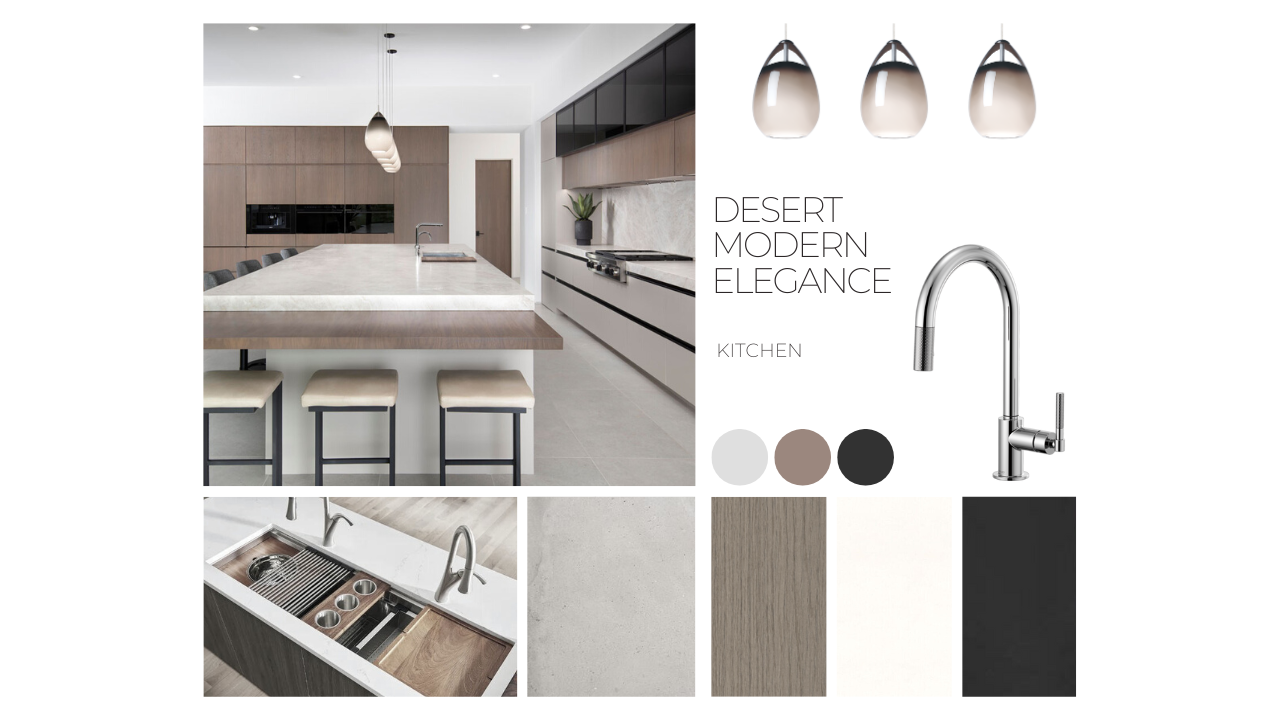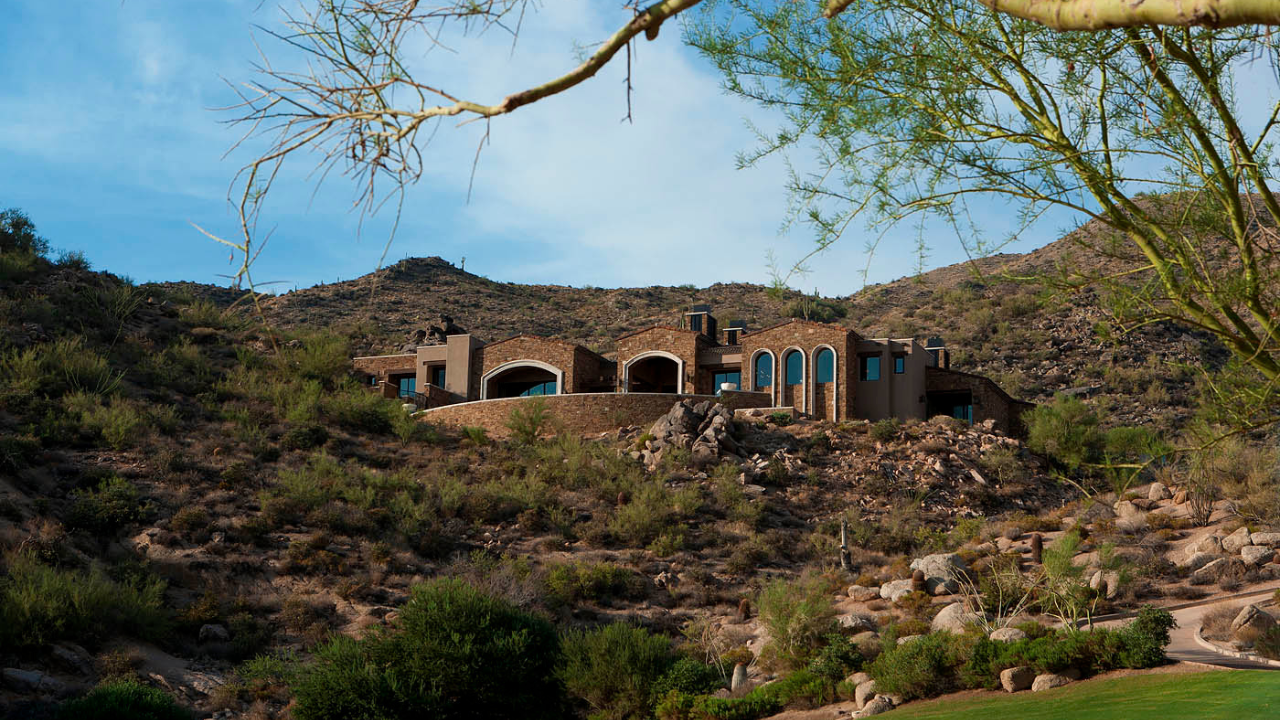
Kitchen counters go through a lot on a daily basis. They need to last and tolerate heavy use – everything from being a gathering space to spills and drops.
While there's not necessarily a right or wrong choice for your countertop, there are some characteristics that will help you decide what's right for you and your home.
If you've been thinking about replacing your counters, you've probably already realized there are dozens of countertop types available, ranging from natural-stone and laminate sheets, to quartz and tinted concrete – so it can get overwhelming quickly.
But, there are a handful of features and attributes that can help you narrow it down quickly.
In this post, we’ll take a look at 10 popular types of countertop materials and the price range, durability, porous nature, maintenance, cleaning, sealing and installation of each: Marble, granite, quartzite, quartz, soapstone, Dekton, porcelain, butcher's block, laminate and concrete.

1. MARBLE
The classic beauty and veining of marble is tough to beat. You'll see it in many luxury homes in every design style. With marble, most peoples' concern is about staining and durability, which is understandable. If you're the type of person who embraces natural wear and tear, marble won't be an issue for you. If you're more particular about keeping your countertops in perfect condition I'd steer you towards a quartz or quartzite where you can still get the natural stone look, but with better durability. Marble is resistant to heat but you always need to be careful.
PRICE RANGE: $100+/sf
DURABILITY: Durable
POROUS VS NON-POROUS: Porous
MAINTENANCE: High maintenance
CLEANING: To clean, in a spray bottle combine a squirt of dish soap and hot water. Spritz the entire surface of the marble, then wipe clean with a microfiber cloth. Dry with a second clean cloth to make sure no moisture is left on the surface. Water can leave marks on marble. Wipe off spills right away, especially if they are acidic (lemon juice, vinegar, wine, etc).You can also use a hydrogren peroxide solution, baking soda paste or specialty stone cleaners.
SEALING: Needs to be sealed, reseal every six months to one year to ensure it remains in the best condition
INSTALLATION: Natural stones are a bit more difficult to install than man-made stones. However, marble is a common countertop material for installers, so it should be easy to find a reputable company who can do the job well.
2. GRANITE
Granite countertops are exactly what their name implies – they’re 100% natural rock with nothing added. Removed from quarries around the world as large blocks, granite is then sliced into sheets and custom cut to fit your kitchen. Granite countertops resist damage from stains, heat and scratch better than almost all other types of countertops, but since it's a hard material it also makes it prone to chipping. They’ll last a long time and the price is hard to beat for a natural stone.
PRICE RANGE: $45-$180/sf.
DURABILITY: Very durable
POROUS VS NON-POROUS: Porous
MAINTENANCE: Granite requires regular maintenance to keep it looking beautiful. Besides regular cleaning, you'll need to make sure the granite is sealed periodically to protect the surface. Stains can be extremely difficult to remove, but not impossible. Dealing with stains quickly will give you the best results.
CLEANING: To clean, in a spray bottle combine a squirt of dish soap and hot water. Spritz the entire surface of the marble, then wipe clean with a microfiber cloth. Wipe off spills right away, especially if they are acidic (lemon juice, vinegar, wine, etc). You can also use specialty stone cleaners.
SEALING: Needs to be sealed. Reseal every year to maintain great condition.
INSTALLATION: Natural stones are a bit more difficult to install than man-made stones because they have to be careful to avoid cracking and breaking during the fabrication process. However, granite is a common countertop material for installers, so it should be easy to find a reputable company who can do the job well.
3. QUARTZITE
Quartzite is known for being one of the strongest, most durable natural stone materials. Of course the harder the stone, the more susceptible to chipping and cracking. It is a porous material so it will absorb spills, stains and bacteria and needs to be sealed properly to avoid scratches, permanent stains and other damage. There are many options for shades of white and light grey with veining that is generally more subtle than marble.
PRICE RANGE: $70-$210/sf. The cost of a quartzite countertop varies based on the quality of the stone and where it was quarried.
DURABILITY: Durable. Because it is a harder natural stone it is more susceptible to chipping and cracking. It's important to always use cutting boards.
POROUS VS NON-POROUS: Porous
MAINTENANCE: Quartzite countertops need regular sealing every six months to one year keep them in good condition and remove any scratches and stains.
CLEANING: You can use a cloth, microfiber cloth or the soft side of a sponge. Use clean water and a mild, neutral cleaner that is suited for stone surfaces. Clean spills right away, especially acidic spills (lemon juice, vinegar, wine, etc).
SEALING: Needs to be sealed, reseal every six months to one year to ensure it remains in the best condition
INSTALLATION: Natural stones are a bit more difficult to install than man-made stones because they have to be careful to avoid cracking and breaking during the fabrication process. However, quartzite is a common countertop material for installers, so it should be easy to find a reputable company who can do the job well.
4. QUARTZ
Quartz countertops are a man-made stone that uses approximately 93-95% percent quartz and 5-7% resin by weight. It's manufactured by blending pulverized quartz or other natural stone aggregates like granite and marble with a polymer resin mix. It's known for being incredibly impenetrable, dense, and resilient for long-lasting quality. Quartz is harder, stronger and safer than marble, granite and other natural stones. It's also heat resistant, but using a trivet is necessary for very high temperatures. Since it's nonporous, you don't have to worry about stains, bacteria or mold. Design-wise quartz enables great flexibility in patterns, finishes and color. Some companies do a great job of creating surfaces that closely remember natural stones. So, if you want a natural stone look without the fuss, quartz is for you.
PRICE RANGE: $50-$150/sf.
DURABILITY: Very durable
POROUS VS NON-POROUS: Non-porous
MAINTENANCE: Quartz is an impenetrable surface that is highly nonporous and nonabsorbent made to be impervious to stains and easy to maintain. Impressive scratch-resistance strength, not susceptible to scrapes or scuffs.
CLEANING: Simple to clean. Just use soap and water.
SEALING: Does not need to be sealed
INSTALLATION: Easy to template, install and customize by professionals, suited for indoors and available in a selection of outdoor colors.
5. SOAPSTONE
Soapstone is one of the most functional countertop materials for a kitchen, although not as common as other natural stone countertops. It is made from a steatite stone, a naturally occurring stone that includes dolomite, magnesite and chlorite. It's generally more plain-looking, but has both an elegant and rustic feel, reminiscent of slate or granite. It's a non-porous natural stone, meaning you don't need to worry about liquids like wine, vinegar, coffee, etc. seeping into the stone and creating stains. Soapstone countertops are also heat resistant. As such, you do not need to worry about discolorations or damage from heat. As with any natural stone, each slab is unique so you get a one-of-a-kind countertop in your home. If you prefer natural countertop materials, you will enjoy a soapstone countertop.
PRICE RANGE: $45-$120/sf. The cost of a soapstone countertop varies based on the talc content of the stone and where it was quarried.
DURABILITY: Durable. While it appears soft, soapstone countertops do not crack easily. When it comes to scratches, though, the softness makes it more easily susceptible to scratches – so it's important to always use cutting boards.
POROUS VS NON-POROUS: Non-porous
MAINTENANCE: Soapstone countertops need regular oiling to maintain their natural look. After applying mineral oil, there's a chance the texture may change to a soap-like, leathery feel, hence the name. Once it has this texture, it will not go back to the original state.
CLEANING: To clean, in a spray bottle combine a squirt of dish soap and hot water. Spritz the entire surface of the marble, then wipe clean with a microfiber cloth. Dry with a second clean cloth to make sure no moisture is left on the surface. Water can leave marks on marble.Wipe off spills right away, especially if they are acidic (lemon juice, vinegar, wine, etc). You can also use a hydrogren peroxide solution, baking soda paste or specialty stone cleaners.
SEALING: Does not need to be sealed
INSTALLATION: Natural stones are harder to install than man-made stones. But with soapstone, the ease of installation makes it cheaper than other stones.
6. DEKTON
Dekton is a man made ultra-compact and durable countertop material, made from mixing raw materials under extreme heat and pressure. It's similar to porcelain in terms of manmade stone-like countertop materials.
PRICE RANGE: $60-$95/sf
DURABILITY: It is scratch resistant, stain resistant and heat resistant. They’re known for being “indestructible.”
POROUS VS NON-POROUS: Non-porous
MAINTENANCE: Low maintenance
CLEANING: Wipe the surface using a non-abrasive sponge with soap and warm water on a regular basis.
SEALING: Does not need to be sealed
INSTALLATION: You need someone who can work with this specific material and it can be tricky to find local installers, depending on where you live.
7. PORCELAIN
Porcelain has become a popular countertop option because of its durability and ability to look like natural stone. Porcelain is a man-made material created from a clay that is a combination of a mineral called Kaolinite, along with Silica, Feldspar, and other minerals that work together to create strength and durability. It is almost fully resistant to stains, heat, UV rays, scratching, chips and cracks. Porcelain can be either glazed or unglazed. However, glazing increases the durability of the slab, while also creating a shiny finish and decreasing porosity (which means a decreased risk of staining). One of the major drawbacks to glazed porcelain is that the pattern or color is only printed on the surface and does not go through the entire body of the slab or tile. This means that the interior color may be a different color which becomes a problem if the surface is chipped. Unglazed porcelain, on the other hand, has the same color on both the surface and the interior of the slab.
PRICE RANGE: $55-$120/sf.
DURABILITY: Durable
POROUS VS NON-POROUS: Non-porous
MAINTENANCE: Doesn't require much maintenance.
CLEANING: Simple cleaning with soap and water is all that's normally required. Don’t use steel wool pads or cleaning products with hydrofluoric acid or its derivatives.
SEALING: Does not need to be sealed
INSTALLATION: Porcelain can be easily damaged during fabrication, moving, and installation so it is best left to the professionals.
8. BUTCHER BLOCK
Wood offers both warmth and versatility in the kitchen. Butcher block can take on a range of looks too, depending on the species and grain, and whether you stain it for a deeper tone or sheen. When used for countertops, the wood is kiln-dried and pre-sanded, so it will last years without warping. However, wood is porous, so you'll need to seal your counter with a protective product containing mineral oil fairly often.
PRICE RANGE: $30-$40/sf. Prices will vary based on quality, design, and thickness. Solid-surface options are generally the least expensive route.
DURABILITY: Durable
POROUS VS NON-POROUS: Porous
MAINTENANCE: Butcher block can be a high-maintenance option for countertops because it takes quite a bit of sanding and oiling to keep it looking nice. For daily maintenance, wipe the surface clean after use with a damp cloth. If you notice stuck-on food bits, remove them with a handheld scraper, and buff out any set-in stains with fine-grit sandpaper before reconditioning. To prevent discoloration from heat, always place items on trivets.
CLEANING: For daily cleaning begin by scraping off gunk and food residue. You can use a metal pastry scraper or spatula to gently scrape them away, but be careful to keep the blade at an angle where you just skim the surface to avoid gouging the wood. Next scrub the countertop with a mixture of hot water and mild dish soap. Next, run a clean dish cloth through hot water and rinse the countertop well. Now spray undiluted white vinegar onto the countertop, and let sit for a few minutes. Wipe off with a clean, damp dish cloth. Dry thoroughly using a clean dish towel or paper towel.
SEALING: Needs to be sealed. Once installed, it’s important to treat or seal butcher block to keep it from drying out and staining. There are a lot of options for products to treat butcher block, but one of the simplest and least expensive is mineral oil. To seal butcher block with mineral oil, you simply apply the mineral oil generously, let it soak in, and wipe off the excess. You need to do it fairly regularly at first but then only about once a month after you’ve gotten through several applications. The once drawback it that items you lay down on the surface, like paper, will absorb the oil – even if it’s been weeks since you oiled it. Another popular option is Waterlox. The company has great instructions on application of Waterlox on their website, but the main steps are to sand the butcher block, clean it with mineral spirits, and then apply 3-5 coats of Waterlox with a 24-hour dry time between coats.
INSTALLATION: If you are looking to DIY your countertops, butcher block can be a great option for you. There are plenty of tutorials online to guide you through the process.
9. LAMINATE
Today's laminates are not the Formica countertops you may remember from the 1960s. While they do not have the quality or prestige of quartz, natural stone, or composite materials, the latest high-pressure laminates (HPLs) are by no means inferior countertop materials. You can find hundreds of design options and they are much more affordable than most other materials. Laminates are plastic phenolic resins that are laminated onto layers of ordinary brown kraft paper, then a decorative print layer is added, which is then topped by a wear layer and a thin, transparent melamine resin layer that protects everything. In modern high-pressure laminates, the plastic resins are impregnated with cellulose layers that solidify into a solid under heat and pressure, giving the product considerably more strength and resistance to heat and scratching. For DIYers, laminates are one of the best choices. The drawback is that they have a shorter life than other materials, and even the best of them can be susceptible to burns, chipping, or delamination.
PRICE RANGE: $25-$35/sf.
DURABILITY: Susceptible to burns, chipping and delamination
POROUS VS NON-POROUS: Non-porous
MAINTENANCE: Laminate countertops are made from plastic resins that make the countertops very easy to clean and resistant to stains. They are subject to delamination over time, especially if water seeps through seams, and repairs are very difficult to make. Serious damage usually requires replacing the entire countertop.
CLEANING: Simple cleaning with soap and water is all that's normally required. Do not use abrasive cleaners, this can cause scratching.
SEALING: Does not need to be sealed
INSTALLATION: If you are looking to DIY your countertops, laminates can be a great option for you. There are plenty of tutorials online to guide you through the process.
10. CONCRETE
It's hard not to misunderstand concrete countertops. Most of us think of cold impersonal slabs of gray concrete, but today they are warm, functional and remarkably stylish surfaces. Concrete is rock-solid. Part of what makes it interesting is that it can be etched, acid-stained, stamped, and sealed to create a countertop surface that is unlike almost any other available material. While concrete is not scratch-proof, it does resist scratches remarkably well.
PRICE RANGE: $65-$135/sf.
DURABILITY: Very durable
POROUS VS NON-POROUS: Porous
MAINTENANCE: While it's true that concrete is very long-lasting, it does require somewhat regular care to maintain its strength and durability. Because concrete is porous, it's susceptible to staining unless it's sealed with a water-based wax sealant about once each year.
CLEANING: The best way to clean your concrete countertops is with a pH-neutral cleaner. Avoid soap. Soap will leave a film no matter how much you rinse and wipe the countertop. It also makes the surface dull and harder to keep clean. A pH-neutral cleaner (pH 7-9) is more efficient and effective. Spray on, wipe or scrub with a non-abrasive sponge, and buff dry for no streaks.
SEALING: Needs to be sealed. Concrete sealer can last anywhere from one year to over 10 years before it needs to be reapplied.
INSTALLATION: As part of the installation, the crew may build or install support frames for sinks, since it is important that the countertop itself not carry the weight of the sink. If the sink is an under-mount style, it is set in place first, then the countertop is installed over it. The countertop is usually adhered to the cabinets with construction adhesives after being carefully leveled and shimmed.
All in all, you can see each countertop option comes with pros and cons and it is really about deciding what's best for your home and lifestyle.
What countertops do you have in your house and what do you like and dislike about them? Let me know.





